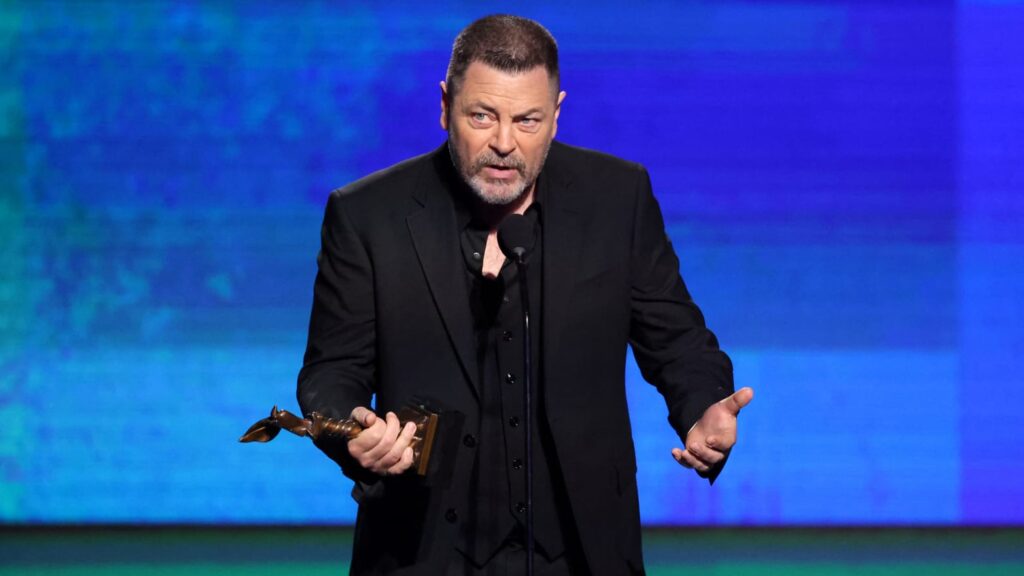Nick Offerman Criticises Homophobic Backlash in Award Speech

Nick Offerman, renowned for his role in The Last of Us, seized the opportunity during the Independent Spirit Awards to denounce the homophobic criticism aimed at his character.
At the ceremony held in Santa Monica, California, Offerman clinched the accolade for best supporting performance in a new scripted series, embodying Bill in the TV drama. Bill and his partner, Frank, navigate the aftermath of a fungal brain infection, a central theme in the acclaimed HBO show.
In his acceptance speech, Offerman expressed gratitude to HBO for their boldness in bringing forth narratives like theirs. He emphasised the significance of stories that challenge homophobia, asserting that the essence of the storyline transcends categorizations like “gay story” and delves into the realm of love.
Offerman’s impassioned words resonated with the audience, evoking enthusiastic applause. Murray Bartlett, portraying Frank, was also among the nominees, alongside Bella Ramsey for her portrayal of Ellie. Keivonn Montreal Woodard secured the award for best breakthrough performance, embodying the character Sam.
In the TV realm, Netflix’s Beef garnered recognition with two wins, while the Korean-American romance Past Lives clinched the top spot in the film category, securing both best feature and best director awards for Celine Song.
The Independent Spirit Awards, celebrated for honouring projects beyond the major studio system, also highlighted literary-satire American fiction and boarding-school comedy-drama The Holdovers.
Amid the festivities, a pro-Palestinian protester made his stance known by amplifying his message with recorded chants, igniting discussion among attendees.
Simultaneously, Oppenheimer emerged victorious at the Producers Guild of America Awards, a noteworthy predictor of the Academy Award for Best Picture. This accolade serves as a precursor to the climax of the awards season, set to unfold at the Oscars on March 10.
Offerman’s stance against homophobic backlash marks a significant moment in the ongoing dialogue surrounding LGBTQ+ representation in the media, underscoring the importance of inclusive storytelling and challenging stereotypes. His remarks reflect a broader push for greater acceptance and representation within the entertainment industry.
